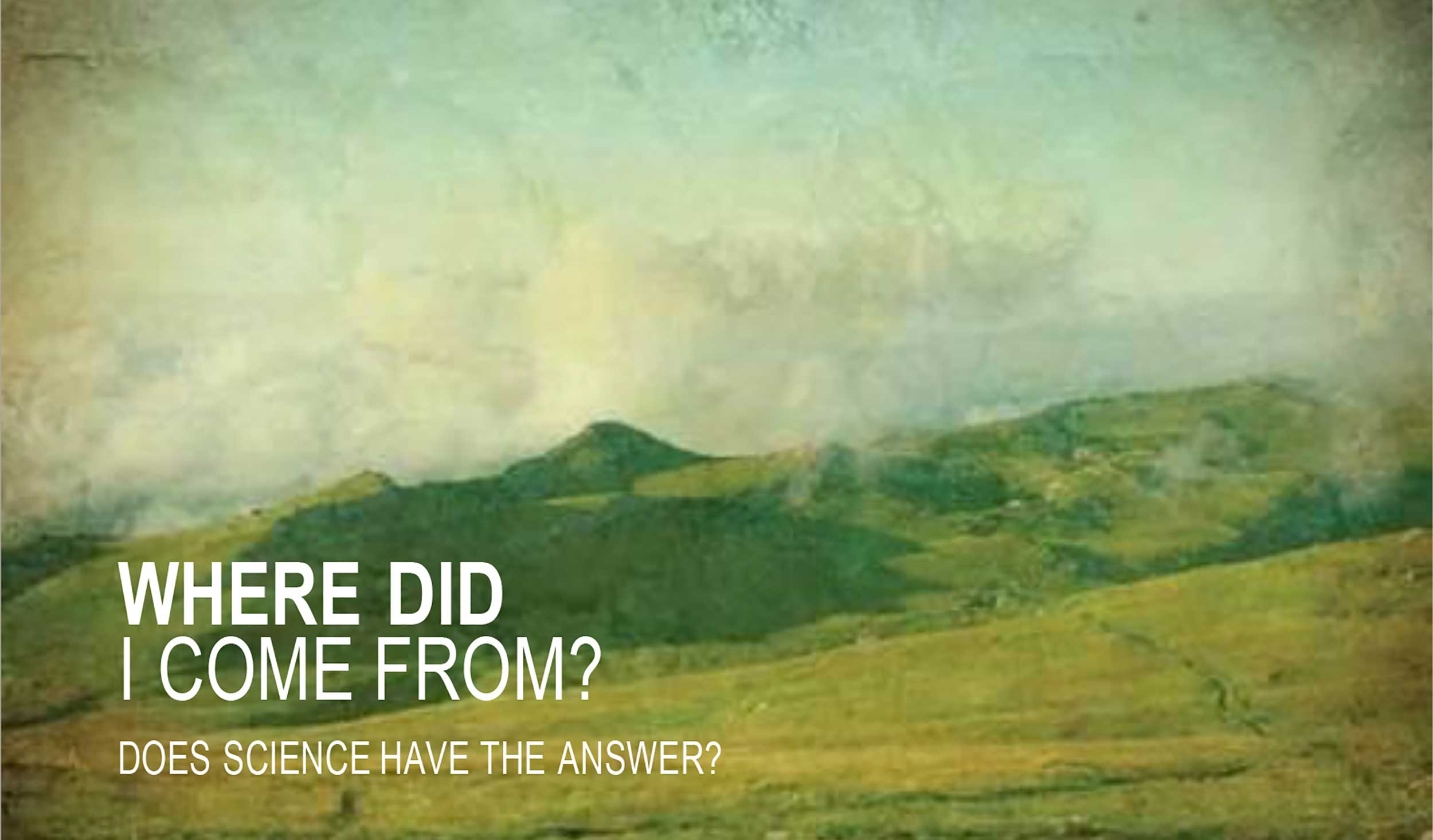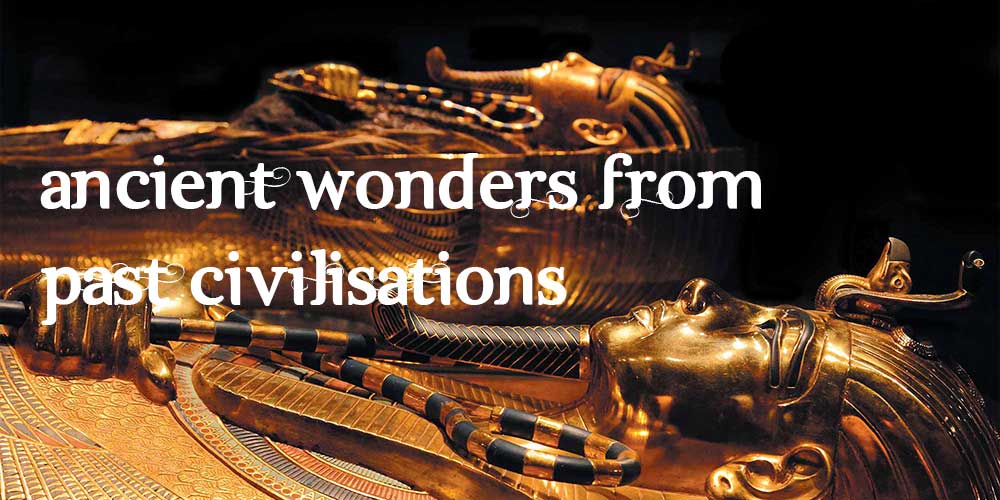
TRY JESUS 3
“The question of whether there exists a supernatural creator, a God, is one of the most important that we have to answer. I think that it is a scientific question. My answer is no.” Richard Dawkins
The Search for Meaning
This is the question that still plagues us in the 21st century. We’ve lost our identity, because we don’t know where we came from. One 16-year-old boy said:
“Why am I here – life isn’t worth living – I feel like nothing – it’s not my fault for what I am – so I just don’t understand life and why I was put here on earth – if I can’t accomplish anything or do anything for other people or myself – maybe all should just die – then I wouldn’t have any problems.”
A cartoon of a monkey in a cage has the keeper standing outside. The caption reads,
“Am I my keeper’s brother?” Are we just glorified monkeys – mere biological machines, chance happenings – or is there more to life?
According to philosopher Francis Schaeffer, there are only three possible answers as to where life came from.
The first is everything that exists came from absolutely nothing.
The second, all life had an imper- sonal beginning – life came from matter or energy.
The third possibility is life had a personal beginning.
The first answer we can dismiss very quickly, because out of nothing you get nothing. That leaves only two views
– evolution or creation.

The Theory of Evolution
The prevailing view, in both East and West, is that life had an impersonal beginning. In the East it’s called ‘pantheism’; in the West ‘evolution’.
Pantheism is the belief that everything is god – an impersonal blind force or energy. Evolution suggests all life came from impersonal matter, or energy.
That is: Time + Chance + Matter = Life. There’s nothing else. This is the prevailing world-view, taught by most universities, colleges, schools, and by the media.
Life, according to biologist Jacques Monod, is the product of blind, irrational chance. He says:
“Chance alone is the source of every innovation, of all biosphere…number came up in the MonteCarlo game.”
This is the predicament of today’s society. If we came from mud and are going to end up as food for worms, then what we do in between is of no significance at all.
The worms won’t complain if we’re immoral or kill each other. Yet somehow we find that hard to live with.
For example, Nobel prize-winner Francis Crick in Life Itself: Its Origin and Nature, while definitely believing life happened by chance, can’t live with the consequences of that view.
He personifies nature with a capital “N” (“Nature has solved this difficulty with a neat trick”, “Nature invented”).
To personify something, which by definition is impersonal, is to try to find meaning in rhetoric.
People such as Crick can’t live with their own system. “This kind of semantic mysticism,” points out Francis Schaeffer, “gives relief to people caught in the web of the impersonal.”
Francis Crick admits, in studying the origin of life, it seems impossible for it to have happened here.
“An honest man, armed with all the knowledge available to us now, could only state that in some sense, the origin of life appears at the moment to be almost a miracle, so many are the conditions which would have had to have been satisfied to get it going.”
What he then does is postulate that life must have evolved somewhere else in the universe and became intelligent enough to make a rocket ship to transport micro-organisms here.
He labels it “Directed Panspermia.” That doesn’t solve the problem. It only pushes it further away.No matter how improbable is the chance of life originating on earth,
Richard Dawkins postulates it happened. In a Time magazine debate with scientist and Christian, Francis Collins (who headed a 2400 multinational team in mapping the genome), to increase the odds, Dawkins speculates there are billions of universes.
He says “that maybe the universe we are in is one of a very large number of universes… as the number of universes climbs, the odds mount that a tiny minority of universes will have the right fine- tuning” to produce life.
This is pure speculation, without evidence, to avoid the only other option, that there is a supernatural God behind the cosmos.
The New Physics
Today more scientists are willing to refute the idea that life is the product of blind chance.
They support the idea of a designer behind the universe. World-renowned physicist Paul Davies says: “A once-popular argument with theologians was to point out how astonishingly well ordered the universe is, how harmoniously its components dovetail together. All this, it was reasoned, must be the result of design, and therefore evidence of a Great Designer. Yesterday’s theologians would have been delighted with today’s discovery of just how delicately balanced that cosmic order turns out to be.”
(“The Great Conundrum in the Sky,” The Guardian)
More recently Davies wrote that “the universe is seen to be a product of law rather than chance… Ordinary men and women continue to search for meaning behind existence. The new physics and the new cosmology reveal that our ordered universe is far more than a gigantic accident.”
(Superforce: The Search for a Grand Unified Theory of Nature).
He goes on to say that while science may explain the world, we still have to explain the laws that enabled the universe to come into being.
These laws, he says, “seem themselves to be the product of exceedingly ingenious design. If physics is the product of design, the universe must have a purpose, and the evidence of modern physics suggests strongly to me that the purpose includes us.
Hoyle states: “A commonsense interpretation of the facts suggests that a superintellect has monkeyed with physics, as well as chemistry and biology, and there are no blind forces worth speaking about in nature.”
His colleague,Chandra Wickramasinghe, concurs: “The chances that life just occurred on earth are about as unlikely as a typhoon blowing through a junkyard and constructing a Boeing 747.”
(New Scientist)
Professor Jack Ambrose of London University indicates the tide has turned
.In The Nature and Origin of the Biological World he wrote:“The creative view of life and species no longer needs to be defended against evolutionary arguments. It is the reductionist evolutionist who is now in retreat.”
Paul Davies, in The Mind of God, says,
“I belong to the group of scientists who do not subscribe to conventional religion but nevertheless deny that the universe is a purposeless accident. Through my scientific work I have come to believe more and more strongly that the physical universe is put together with an ingenuity so astonishing that I cannot accept it merely as a brute fact. There must, it seems to me, be a deeper level of explanation. One wishes to call that per level ‘God’ is a matter of taste and definition. Furthermore, I have come to the point of view that mind – ie, conscious awareness of the world – is not a meaningless and incidental quirk of nature, but an absolutely fundamental facet of reality.”
These are honest men, who not, in the words of one scientist, “encased in scientific dogmatism.” They are willing to be honest with the facts, and recognise the limitations of science.
This guide looks at the story of Creation in Genesis 1 and 2. The first chapters of the Bible answer some of the most important questions that can be asked: “Where did I come from?” “Why am I here?” “What’s the purpose of life?”

What important fact does the first verse of the Bible tell us? Genesis 1:1
Bible writers don’t try to prove God’s existence. They accept it as a self-evident fact. Just as we can’t prove that the sun will rise tomorrow or that a sunset is beautiful, or that love is real, or even that we exist, belief in God is the only thing that can give life meaning. If there’s no God, then life would truly be as Shakespeare said, “a tale told by an idiot, full of sound and fury, signifying nothing.”
What part did Jesus play in the creation of this world? John 1:1-3, 1
Human beings, as the crowning act of creation, were made in the image of God. How does this make us different from the rest of creation? Genesis 1:26, 27; 2:7
It’s important to note that both men and women are created in the image of God. Marc Hauser, Harvard professor of psychology and anthropological biology says people possess humaniqueness, a suite of cognitive skills including the ability to recombine information to gain new understanding, a talent animals simply don’t have.
All creatures may exist on a developmental continuum, but the gap between us and the second-place finishers is so big it shows we truly are something special. “Animals… never experience the aha moment that a 2-year-old child gets.” (Inside the Minds of Animals, Time, Aug 5, 2010)
”
What instructions were given to the first man and woman? Genesis 1:28-30; 2:15
God created us as sexual creatures, male and female, with the ability to have children. Our sexuality is not something sinful as some people have considered. The idea that the body and its desires are evil is not taught by the Bible.
Sexuality, as with all of God’s gifts, can be abused, and often is. God designed that our sexuality should find expression within a committed marriage relationship. We were also given management and care of the environment. We haven’t done very well at that either.
The Purpose of Creation
What was the whole purpose or reason for God creating people? Revelation 14:7 See also Genesis 2:1-3; 3:8, 9
We were created for fellowship with God and to worship Him.The word“worship” comes from Old English meaning “worthship”. God, as our Creator, is worthy of our adoration and allegiance. This gives meaning and value to human beings, in contrast with evolution that says our existence is just an accident and has no significance.
As we find fulfilment from relationships with valued friends, so God created us to have a similar fulfilment in relationship with Him. The Creation story reminds us that it’s only in such a relationship with God that we can find real satisfaction in life. Someone has said there’s a GOD-SHAPED HOLE in every one of us – and only God can fill it.
God celebrated the first marriage.
With what words did God express the deep physical and spiritual unity that is meant to exist in marriage?
Genesis 2:18-25
The Bible is very clear that marriage between a man and a woman is God’s design.
Men and women complement each other. Jesus referred to this passage when stressing the importance of marriage between a man and a woman (Matthew 19:4-6)
Eve was created from a rib taken from the side of Adam, signifying she was not to control him as the head, nor to be trampled under his feet as an inferior, but to stand by his side as an equal, to be loved and protected by him..

What choice did God give our first parents that shows they weren’t robots? Genesis 2:15-17
Being able to choose is what makes us moral creatures. This tree provided a test of human loyalty and obedience to the will of God who made us. Because God is a God of love, He can’t force us to obey Him.
He wants us to obey Him because we love Him and because of His love for us. Death is a consequence, not a pun- ishment of going against God – just as it’s a consequence of jumping out of an aeroplane without a parachute.
Creation by a Personal God
This brings us to the only viable alternative that can give meaning to life – that a personal God created the universe.
Picture a young couple in search of their dream home.
It has spacious rooms, large windows, an efficient, practical kitchen, creatively decorated with a beautifully landscaped garden.
You couldn’t blame them for thinking that the archi- tect must have had them in mind when the house was designed.
Imagine them sitting in the lounge room contemplating what the architect was like – intelligent, creative, similar tastes to themselves, a lover of beauty.
But what was the architect like as a person? Whatever they could learn about the architect by studying the house, there are some things about the architect that could never be known unless revealed from some other source. So it is with the Designer and Maker of the Universe and us.
Just as scientists in their study of nature can see evidence for incredible design and intelligence behind the cosmos, so the Bible, as a revelation from God, tells us what He is like as a person.
Theologian and philosopher Carl Henry writes:
“Ever since Western man accepted the evolutionistic contention that man has no father save a biological process, or accepted the contention of existentialism that man’s only father is a nothingness which quite without any ascertainable reason, hurled him into existence, the mood of Western man was changed. He has become a stranger to himself. … He has lost God as Father, the universe as something friendly, life as meaningful.”
“Indeed the doctrine of creation is so basic as to be the indispensable foundation for any tolerable, viable human existence.”
Empty, Lonely People
Barry McGuire was a leading actor in the Broadway production of the 1960s musical “Hair”.
Barry thought that he was a god and that liberation was the answer to life.
One day he was smoking marijuana at a friend’s place where he noticed a book entitled Good News for Modern Man.
“I’m a modern man,” he thought, “I’ll take it home and read it.”
At 35 years of age he read the Bible for the first time and was convinced that the direction in which his life was headed was all wrong.
He said: “I saw everything for what it really was, just empty, lonely people clutching at each other for a moment of pleasure to forget the emptiness within themselves.”
That night Barry prayed to God for the first time in his life and confessed his sins.
Barry promised God: “If You want me after this, rotten piece of meat that I am, I will give myself to You.”
God came into his life and gave him power to walk away from promiscuous sex and drugs, and habits
that he had been following for years and years.
(The Sower)
For the first time the emptiness in his life was filled. That’s what God wants to do for us too.
Jesus wants us as His friends.
“I saw everything for what it really was, just empty, lonely people clutching at each other for a moment of pleasure to forget the emptiness within themselves.”
How does it make you feel to know that life is more than a gigantic accident – that it has a purpose and we’re not alone in the universe?























